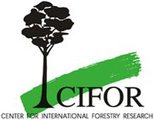The Center for International Forestry Research (CIFOR) has released a report on the implementation of sub-national initiatives related to forest carbon in Brazil, Cameroon, Indonesia, Peru, Tanzania and Viet Nam.
The report examines the intended and potential outcomes of such sub-national REDD+ projects as well as conditions for success and the role of stakeholder engagement.
 28 October 2013: The Center for International Forestry Research (CIFOR) has released a report on the implementation of sub-national initiatives related to forest carbon in Brazil, Cameroon, Indonesia, Peru, Tanzania and Viet Nam. The report examines the intended and potential outcomes of such sub-national REDD+ projects as well as conditions for success and the role of stakeholder engagement.
28 October 2013: The Center for International Forestry Research (CIFOR) has released a report on the implementation of sub-national initiatives related to forest carbon in Brazil, Cameroon, Indonesia, Peru, Tanzania and Viet Nam. The report examines the intended and potential outcomes of such sub-national REDD+ projects as well as conditions for success and the role of stakeholder engagement.
Overall, the report notes that land and tenure issues are one of the most significant determinants of levels of success. In particular, the report states that clear tenure rights are critical. However, this often requires national action, which may be difficult to catalyze through sub-national projects.
The report also notes that livelihood opportunities feature as a high priority among local communities involved in sub-national REDD+ initiatives and, as such, in order for REDD+ to successfully engage local stakeholders, economic benefits need to be clearly demonstrated.
The report also notes that delays in international negotiations are limiting the effectiveness of sub-national projects, especially with regard to uncertainty over the mobilization of resources for REDD+ and associated payments for ecosystem services (PES) and the adoption of social safeguards.
CIFOR is a member of the Consultative Group on International Agricultural Research (CGIAR). [CIFOR Publications] [Publication: REDD+ Subnational Initiatives]